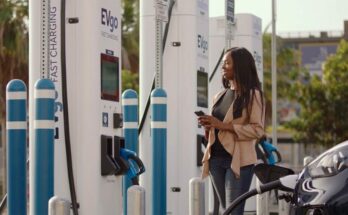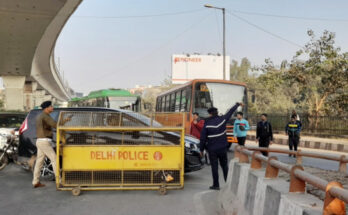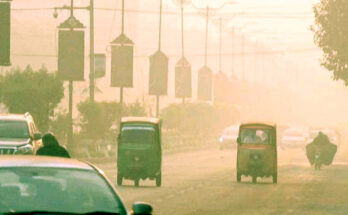Pollution… it is everywhere. We can see it and feel, it’s very real, has very adverse effects. But even so, the society that we have built does not leave much room for the average individual to actually give much of a damn about it. Giving a damn might actually mean the difference between the next meal or wondering how to spend the time on an empty stomach. ‘Hyperbole’, I’m sure you are thinking but let me explain.
Recently there have been news items that suggest the Lahore city administration is taking action to cut down on the very real and damaging smog situation that it currently finds itself in. The going suggestion is to put fines on all types of polluters i.e., fines on smoke-emitting motorcycles, cars, commercial vehicles and buses etc. and on smoke-emitting factories. There will also be fines on people caught burning trash. I think that is a good and laudable approach to the problem; deal with the culprits, hold them responsible.
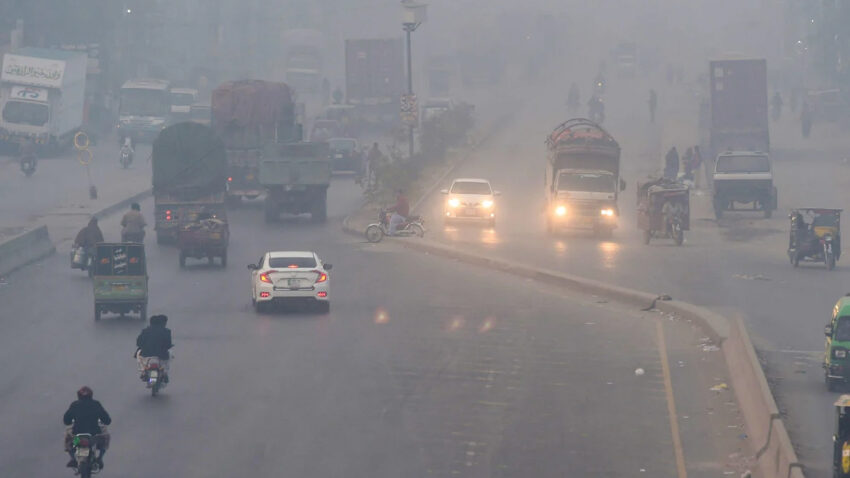
However, there are questions that needs to be asked. What will be the impact of such fines or restrictions on the people of Lahore or even the nation if such fines or restrictions are extended nationwide? And, is the blame totally going to the ones who are at fault or is it just being diverted onto others?
Related: Understanding Emission Standards
Let us start with one of the classics, burning trash. About a decade ago, I used to live in Islamabad, the capital city of Pakistan. It is supposed to be one of the best and cleanest places in the country with very good up-keep. Cleaning crews are seen every morning cleaning up the streets and doing their jobs. I used to live in a hostel in one of the markets in the center of Islamabad. My experience is from a decade ago and back then we had a problem of the cleaners burning the trash after they had cleared it to one side. When asked why they did that, the simple answer was, there were no trash collection trucks to come and pick up the stuff. Thus, the easiest way to deal with it was to burn it. Many a times, the alarm that I used to set to wake me up in the morning was not needed. The smell of burning plastic, leaves and other assorted debris would wake me up much earlier.
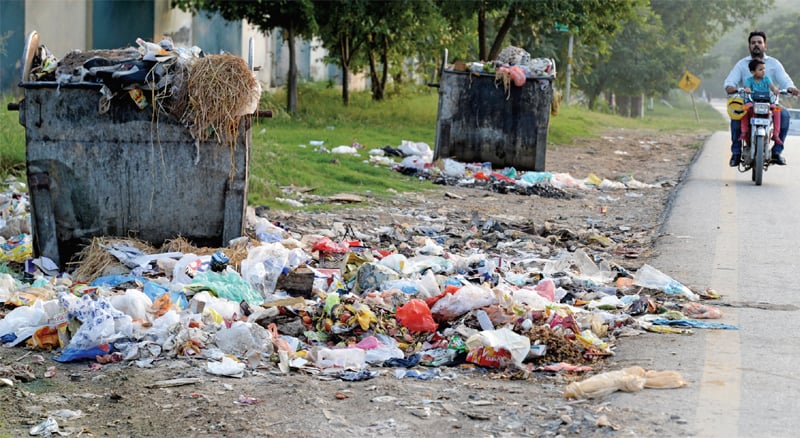
I realize that they did the wrong thing by burning the stuff, but who’s responsibility was it to make sure that such cleaning efforts were fully supported and all trash no matter how small was picked up and dealt with according to SOPs? Mind you, things have improved since then in that area ever since such issues were highlighted. And, of course, that being a posh and very affluent area also had a lot do to with the issues being fixed.
Related: Pakistan Auto Industry – What Is Going On…?
The same logic can be applied to Lahore as well. Sure, the trash collection in the more affluent/posh areas of the city are second to none. But the problem really shows when we get to the small muhallas. There is no way for them to deal with the trash. There is no other way mostly but to burn it. The government has come up with its solution of “penalty or fine until everything is fine”. However, blaming people who have no other way out because their elected government officials/representatives have neglected their duties; is that solution, fine?
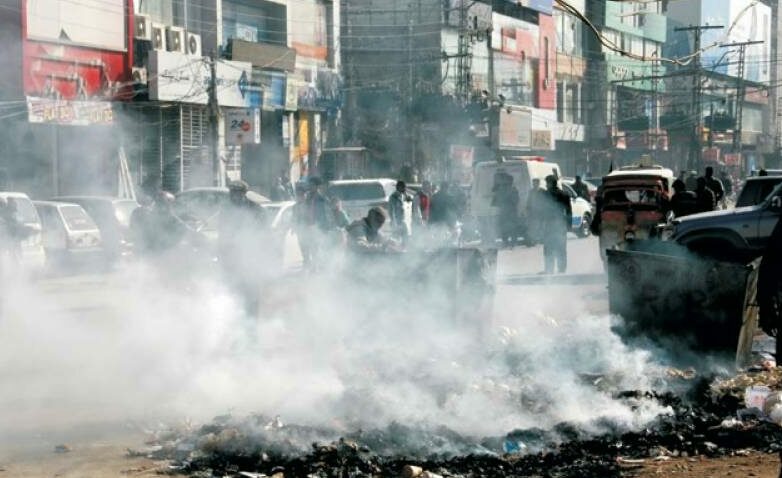
Yes, those people who start fires for fun or who take this easy way out to deal with trash, throw the book at them. Jail them if necessary to set an example. But the main argument still stands. People are in no way inclined to set fires in areas where they live just for the fun of it. What about the genuine cases of people having no other choice but to burn trash to get rid of it because of lack of any government services or support? Dear leaders, ask yourselves, is it really fair to blame or victimize the victims? You impose the fine and scare the people into not burning their trash. Will you now facilitate them with the trash collection services that should have been there in the first place? Or will the people now have to live, drowning in trash?
Related: Indonesia: Tax Structure to be Based on Vehicle Emissions
The second type of fines that the government highlights are fines on smoke-emitting bikes and cars. Again, a very good measure. People who can afford to buy newer means of transport will be forced to finally shell-out for that new bike or car etc. However, here too, we come to the other side of the spectrum; the true capability of the general public. What is a person, who cannot afford to replace their smoke-emitting motorbike or car, to do? That poor soul will now have a choice to make; either keep using said old car or bike and keep paying fines every day or just give it up and either walk or use public transport. This solution of imposing fines will make the lives of so many that much more difficult. Many people earn their living using their smoke-emitting bikes or cars. This effectively puts their livelihood in jeopardy. What a solution! Again, who is the true source behind it? Do people want to keep using such environmentally damaging and archaic machines even-though they have a choice to move on to a better option? Or is it a case of the ones who have the power over such a choice, not being pushed to make the right type of technology available in the market; all in the name of unchecked profits.
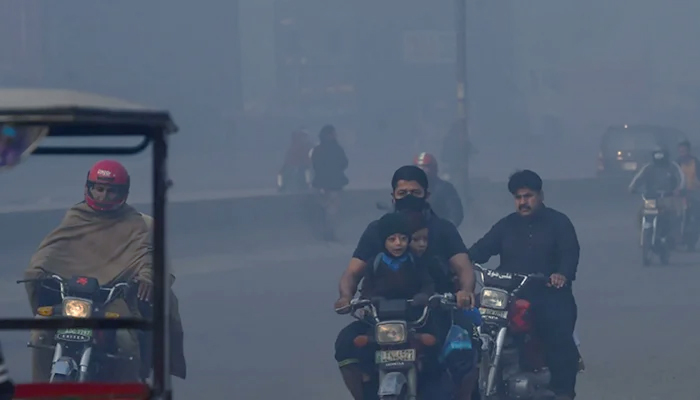
Let us start with the 2-wheelers because as we know, the current government has officially said that this is “awam ki sawari”. Cars have been made so expensive, they are out of reach for most, even in the middle class. Our government has given the political argument that we should marvel at the huge number of new bikes (1.8 million according to the claim) that have been sold during their time in office. In my humble opinion, 1.8 million bikes were sold because most people are in a “panic-buy” mode because of how things are. Cars are already out of the question for most. With the prices of bikes going up multiple time per year and due to the PKR’s performance against the US Dollar, people know to buy now because in a few months bikes would become even more expensive and out of reach (new and used both). Another way of looking at the huge number of bikes sold is whether or not actual end user customers bought them in the first place. With ride hailing services and home delivery services etc. gaining huge popularity in Pakistan, a lot of bikes have been bought by such service providers as fleet bikes. So again, how many were sold to individuals for private use and how many were bought by businesses remains a valid question. But that is a discussion for another time.
Related: Auto Sales Trend Renders Widening Economic Divide in Pakistan
The 2-wheelers sold here in Pakistan are generations old from a technology stand-point. They are still using decades old engines that are known for producing a lot of unwanted emissions. No matter how many new bikes you are “proud of enabling” to be sold, it is still very old technology that has very high levels of bad emissions. So, whether New or Old, “Smoke emitting or non-smoke emitting”; what comes out of the tailpipes of these bikes are exactly the same emissions that have contributed to the smog problem in Lahore.
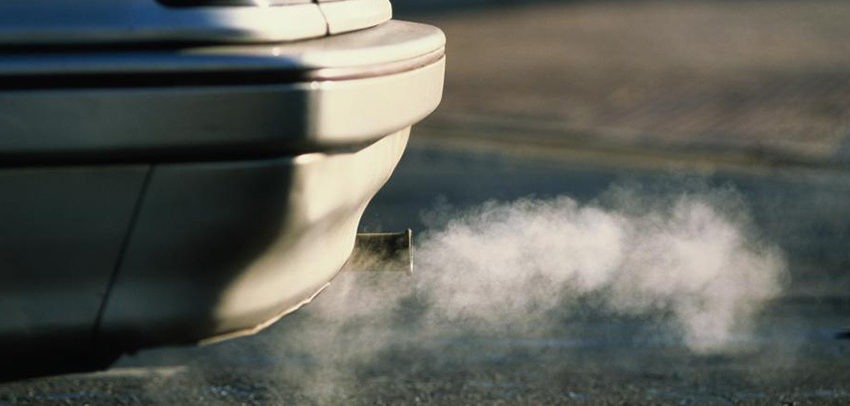
Did the government do what a government should have done? I’m not only talking about the current government but all previous ones as well because they are just as culpable in this situation. Never in the history of Pakistan have any of our dear leaders held the big companies to task and actually grilled them on why they are selling such outdated technology to the masses at such high prices? Elsewhere, most bikes have moved on to EFI engines; with some new motorbikes even coming fitted with catalytic converters to further reduce emissions. Is that the case here?
Related: Economic Advisory Group Says Auto Policy is Damaging for Consumers
The argument can be made that bikes produce much less emissions than cars. However, what tips the emissions problem heavily in their court is the sheer number of bikes on the roads of Pakistan. New or old, none are up to spec on emission standards. Thus, no matter how many new bikes you are “proud of enabling to be sold”; congratulations! You have just added to the problem and not solved much of anything.
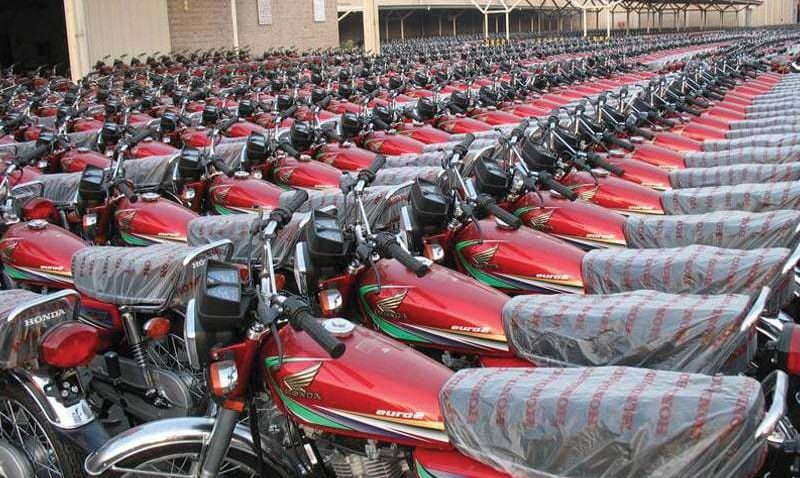
Has the government in Pakistan ever even asked the motorbike selling companies why stickers are the only thing to change when they announce a “new” model? Has the government ever asked these companies why are these bikes so expensive and getting more so by the day and not improving at all in technology? With continuous price hikes, the majority of people are not in any position to afford to migrate on to newer bikes anyway. In such situations with such high prices, why blame the poor for their “Hobson’s choice” i.e., taking what is offered or nothing at all. Again, isn’t the blame being diverted onto many people who have no other option? The people using the smoke emitting bikes; chances are, they are stuck with them and not by choice.
Related: Rising Difference in Motorcycle & Car Prices & the Need to Fill the Gap
Similarly, we now come to the cars. Just like with the 2-wheeler sector, the cars and SUV sector has seen unprecedented and unchecked price hikes with very little in the ways of actual technological advancements. Due to the continuous price hikes for new cars, the prices of used cars (local and imported) have also been rising. The buying power of a budget of PKR 10 lacs, for example, is getting lower and lower. You are not able to find any good vehicles in that budget and what you can find, is getting older and older in terms of model year. That means older technology and very high mileage cars. That means more harmful emissions and smoke. These old cars are increasing in numbers on the road. If the government is going towards clean “green” environment with promotion of fuel-efficient cars for the masses, tell me, are we headed in the right direction?
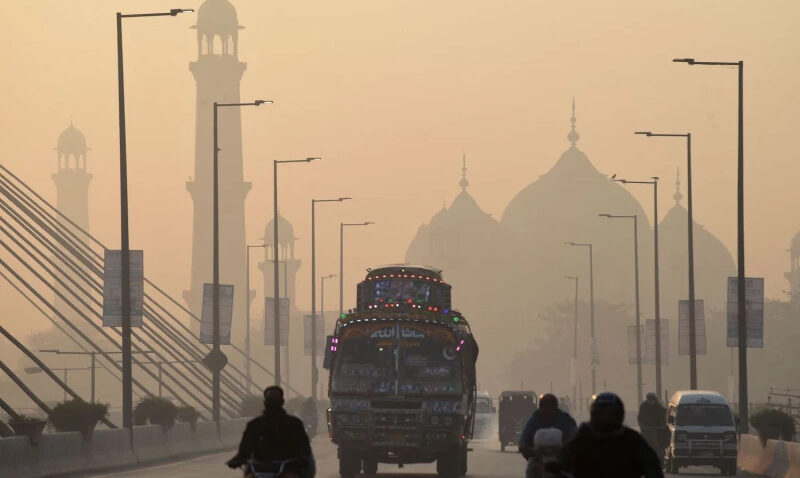
Here too, people are keeping their old cars because they have no choice. Again, many of the people are dependent on their old vehicles for their daily commute and/or earning their livelihood. What will the government do to facilitate them or will it mean daily fines for them? What will those who absolutely cannot afford new cars, do? Will it mean a bad disruption to them earning their livelihood?
Related: Volkswagen, BMW Fined $1 Billion by EU for Colluding on Emissions Technology
Hybrids have been in the world at large since the last couple of decades. Yet in Pakistan it is a forbidden technology that was only seen because it was “smuggled” into the country by the JDM Imports. To this day, when hybrids are as common place in the majority of the world’s countries as old school Internal Combustion Engine (ICE) cars, Pakistan still has to see any significant penetration of affordable hybrid vehicles in the local market by any local company. If the government is so intent on going green, why is it still ignoring hybrids? Oh sure, the government will point out how it has given “incentives” for hybrids; however, aren’t they the same incentives that the government is now busy taking away again because of mismanagement? Even now only one company is “planning” to introduce local assembly of hybrids and that too is held hostage upon the condition of getting what they want or no hybrid assembly line in the country.
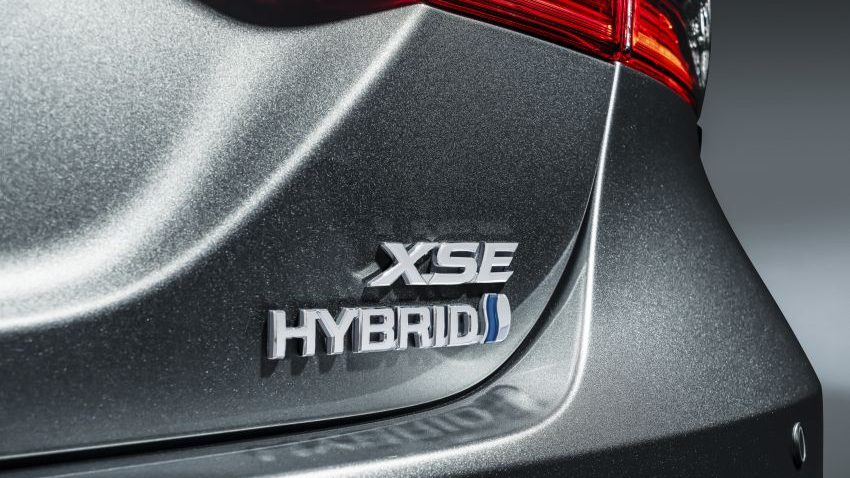
None of the new or old companies have been pushed to focus mainly on hybrids. Toyota has the problem of its “TNGA” architecture, without which it cannot get any new hybrid or non-hybrid models assembled in Pakistan. The other companies don’t seem to have that shortcoming. If the 2016 policy focused on introducing new companies to the local market, the new 2021 policy should have forced/impressed upon these companies the need to emphasize especially on hybrids and on aggressive localization by making them follow a strict deletion policy schedule.
Almost all companies whether Korean, Chinese or Japanese have hybrid models on their books. Why didn’t the government focus on getting the companies to emphasize on their hybrid products? For example, MG is importing the hybrid models of its SUVs. However, when comparing the market price of the same vehicle in Pakistan to what it is in China, we see that the sale price is more than double here. Same thing with the Toyota Camry Hybrid. The price is more than three times what it is in Japan. “Affordable” indeed!
Related: Huge Imbalance in CKD vs CBU Pricing
Even the Electric Vehicles (EVs) have been relegated to a political talking point to get good (political) optics and bludgeon any criticism into submission. What’s been actually achieved on the EV front? If we look at the electricity problems in Pakistan what makes sense is to introduce EVs with larger battery packs for longer driving ranges. Cars and SUVs with 70kWh or even 90kWh batteries are available by very good Chinese EV brands, such as Xpeng, for very affordable prices.
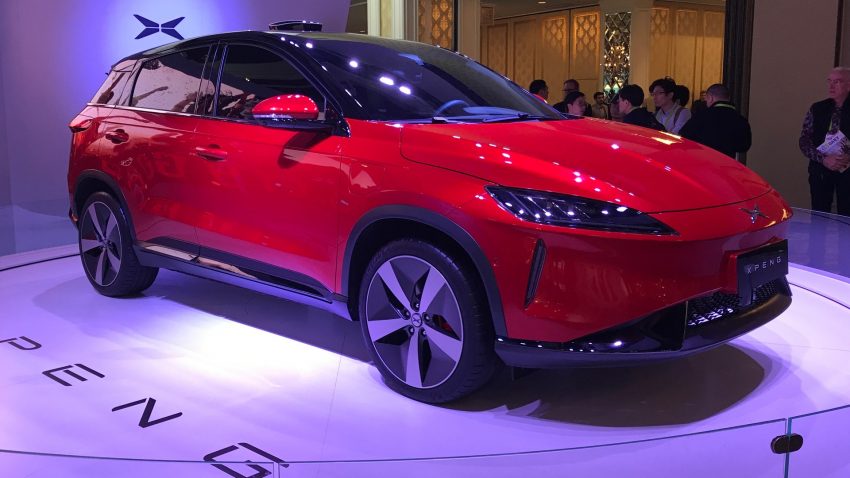
Instead, tax relief on EVs have been limited to 50kWh for some reason. Also, has the establishment of an EV charging network been fast tracked by the government in the country since this government started touting its EV prowess? Except for a few token charging stations in some major cities for maximum publicity, what else (of any actual value) has been achieved? In other nations like China or UK or most of Europe etc., where EVs are being fast adopted for daily use, people pay to get their cars charged at fast-charging stations. Just think; this is another way for our government to earn some (Tax) revenue. Why has our government not thought of ways to pursue this avenue? But alas, this level of insight and forward thinking might be asking too much from a government who has currently allowed and recognized the import of EVs in the country, however when it comes time to register the EVs, there is no set method. Some cities are registering them as 1,300cc cars, some as 3,000cc cars. Yes, one can see the unyielding commitment to progress here.
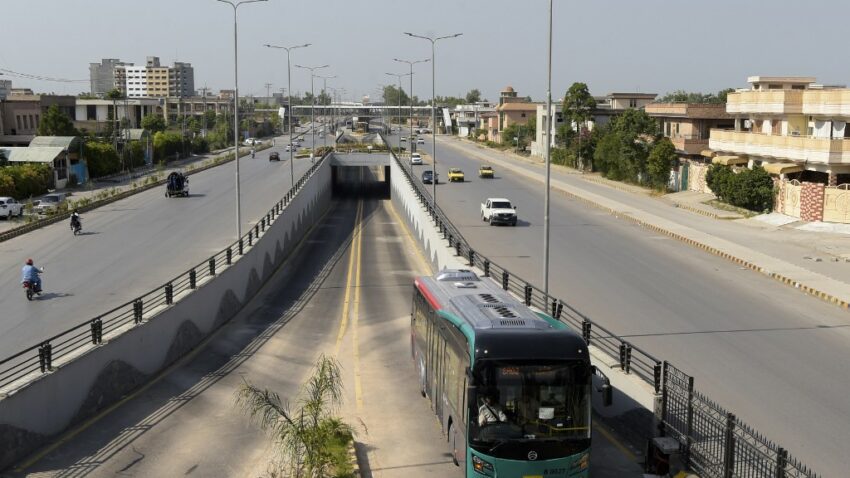
To be fair, the government has taken some steps forward in its bid to clean up some of the big cities. Two projects are currently underway. The government is promoting its “green-line” of buses in Karachi and previously, it has also established the BRT bus line in Peshawar; the establishment of which, to be honest, was rife with serious engineering missteps and major quality issues. These are hybrid and run on specific routes and have a few dedicated buses running around. Again, that is a good initiative and must be commended. However, that is like a drop in the ocean compared to all the other public transport that is running around in all the cities, towns and villages in the country. All the main public transport that is running around in the country is exactly the type that the new rules for Lahore say they will ban or fine; Old vehicles which are smoke emitting and inefficient. Does that mean that the government will shut them all down? What will the people do for their daily commute? Will these new “green” buses, running on their limited routes be enough to cater to the entirety of big cities like Karachi & Lahore? Expanding on that, what about the rest of the nation?
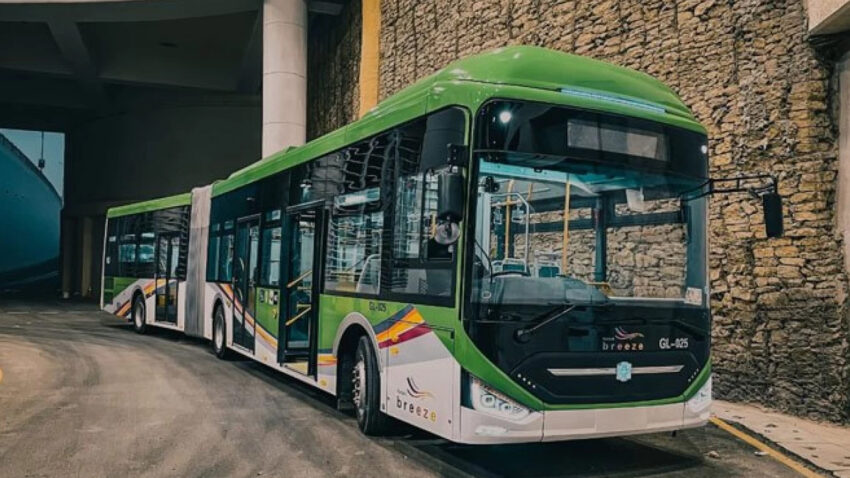
Such grand projects have good optics; however, they currently have very limited impact on the climate/pollution problem as a whole. As stated previously, we have air quality and pollution problems in all cities and towns etc. of Pakistan. Will such large scales projects ever reach all areas where they are needed, in time? For the time being and very importantly, why not facilitate those people who have buses or vans running on transport route of various cities and towns and even those people who are in the cargo transportation business, and offering them new buses, vans or trucks at very subsidized/discounted rates and very low installments? Just by ensuring that you facilitate and initiate the shift of such vehicles to newer more efficient and less polluting vehicles, it will help alleviate the pollution problem to a very large extent. You want to promote green? Here is your chance do the right thing.
All big companies have clearly said that it is not profitable for them to introduce small affordable cars for the masses; The real, actual, goal of the auto policies dashed right there. What good are auto policies for the majority of the nation’s buying public if the policies themselves exclude the people? In some other countries, all companies selling any type of vehicles are bound by law to disclose all the cost, local and imported parts count and profits (company and dealer) on every vehicle sold.
Related: Can We Settle the Localization Debate With This?
Here, cars and bikes are getting more and more out of reach of the public with sky-rocketing own/premium on all cars and the government unable or unwilling to do anything about it. It also seems that the government cannot keep the companies in check and ask them about justifying their prices or why they cannot increase local assembly to meet demand and reduce delivery times. Taxes are being added to cars almost every other month to hide the government’s own mismanagement of auto policies; even though experts were screaming at them at the time of drafting the 2021 auto policy that their auto policies were not tailored in the best interests of the nation or its fragile economy. Instead, they chose to listen to the local auto assemblers who’s biased “expertise” have caused the latest round of insane hikes in import costs, price hikes and tax hikes. Bravo!
The Recap
So, let us recap. Trash burners will be fined, but trash collection services are lacking. Smoke Emitting bikes and cars will be fined. But no new affordable option for either exists in the market. EV and Hybrids are promoted, making for good optics politically; however, no meaningful localization of any hybrid or EV vehicles or any viable EV Charging Infrastructure (which is tax generating and is beneficial for the nation) has been established.
Related: China Bans 533 Cars that Fails to Comply Fuel Consumption Standards
The government is proud to say that during its tenure, a large number of bikes were sold, however, even the new bikes sold in the market are decades old technology that have no emission standards and are almost just as polluting and bad for the environment as their smoke emitting counterparts. The government is fixated on increasing prices as if that is the magic formula that will solve all and chances are that there are even more price hikes on the way. Excellent way to “ensure availability of new cars and technology for the benefit of the nation and to adhere to the government’s “green” initiative.”
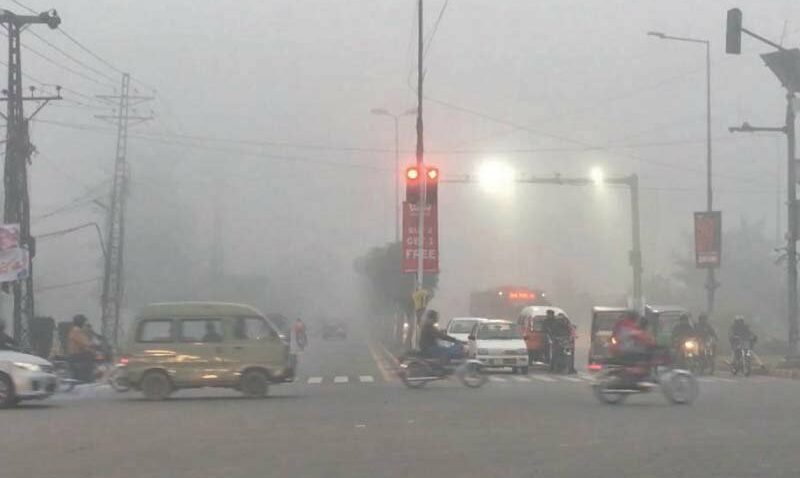
So, what are the people who cannot afford “new and smoke-less” bikes or cars to do? Are smoke emitting bike and car owners supposed to use the public transport? That too is not an option because the fines will target them as well. Most of the vehicles running as public transport are old and fall under the smoke emitting category. The government has shown only token initiative to enhance the public transport by introducing a limited number of “green” buses in select areas in select cities. But it has not given any incentives and/or options to the same private transporters who’s buses these new fines will target, to upgrade/update their vehicles. Cities are growing. Commuting distances are increasing and travel options are being cut. Such fines will, in the long run, effect the livelihoods of many helpless people by causing massive hindrance to their movements. What is the awam going to do?
Punish the culprits, I’m with you all the way. However, let us be honest and start the blame and fines where they need to start; At the very top!
Contributed by: Muhammad Ali Khan– A guy who is passionate about cars and concerned about the state of the auto sector in the country.

CarSpiritPK welcomes Guest Posts. If you have the ability to generate quality content and can write some relevant and useful piece of information to be shared with our readers, feel free to contact us at: [email protected] Send you emails titled as (Guest Post submission)

